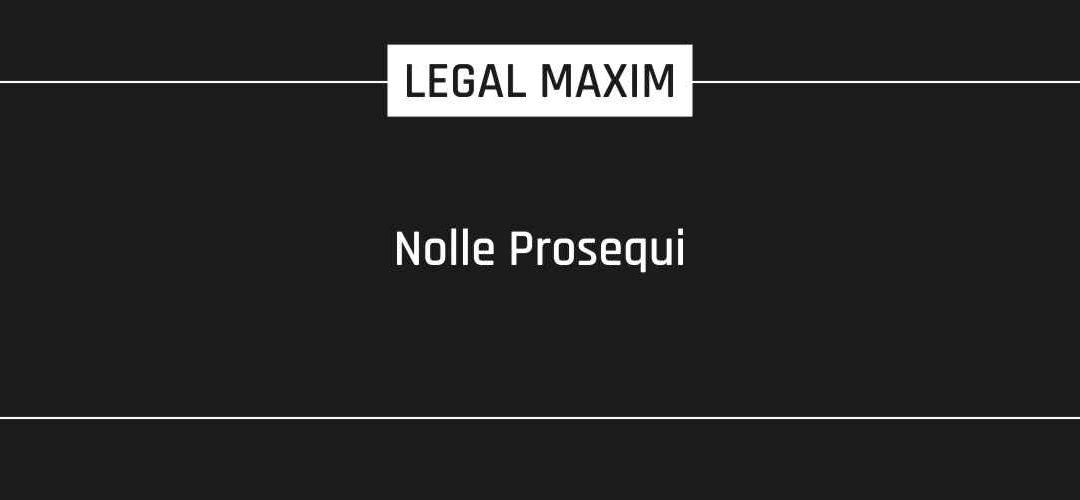Literal meaning
Unwilling to pursue
Origin
Latin
Explanation
This maxim means that there is no longer a will to pursue the case forward. It is generally applied by a judge or the prosecutor with respect to a criminal case. In some instances, it is also used by a plaintiff during a civil case. It could be applied either before or during the trial proceedings. Once this maxim is used the case will not proceed further and all charges against the defendant will be dropped.
In a few jurisdictions, this maxim is not applicable and the case is simply dismissed in such circumstances. This includes countries like New York and India. The difference between the two is that, once this maxim is used, it implies that the case never happened and the charges were never framed; therefore there can be no instance of double jeopardy, unlike cases that are dismissed.
Illustration
This maxim is used when the charges cannot be proved, or the evidence submitted has indicated innocence or a major flaw in the claim of the prosecution or the district attorney is convinced that the accused is not guilty.
Case Laws
In People vs. Daniels, 187 Ill. 2d 301 (1999), the Court had held that by application of this maxim the defendant is not acquitted but all charges against him are dropped.
In Kenyon vs. Com., 37 Va. App. 668 (2002) ¸ it was held that the consequence of this maxim is that the case can still be filed again and be prosecuted by fresh charges document. This is sometimes done ‘with prejudice’, whereby the prosecution in such cases can never re-file the charges against the defendant for the same case.
This maxim has been written and submitted by Ms. Ayushi Goyal during her course of internship at B&B Associates LLP. Ms. Ayushi is a 4th-year law student at Christ University, Bangalore.
